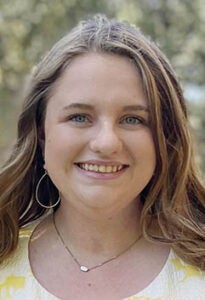Kayla Williams: So, what exactly do I do?
Published 12:00 pm Friday, January 5, 2024
|
Getting your Trinity Audio player ready...
|
Respiratory season is in full force. How do I know? Since Friday, Dec. 15, I have received close to 130 positive flu cases. My team and I have worked two flu outbreaks; five RSV outbreaks and nine COVID-19 outbreaks this season, which typically lasts from October to April.
I am your local public health epidemiologist, and my job is to help stop the spread of harmful diseases and give further recommendations. While most in our community may never speak with me directly or even be aware of all the behind-the-scenes work, I, together with your health providers, play an important role in monitoring possible disease threats and working to protect you.
Before the COVID-19 pandemic, most people had never heard of an epidemiologist. We now know that infectious disease epidemiologists around the world investigated millions of positive cases with the goal of better understanding the virus – how it spread and what we could do to best protect ourselves. We learned a lot along the way, including the essential role that public health and epidemiologists play in helping to guide policy responses.
Epidemiologists don’t only study the data on infectious diseases. Within the Virginia Department of Health (VDH), we have epidemiologists across many other sectors including chronic disease (cancers, heart disease), opioid use trends and injury/violence prevention. Locally, however, every district has an infectious or communicable disease epidemiologist, which is me. I focus on diseases that spread person-to-person. Virginia has over 70 infectious diseases that must be reported by healthcare providers and laboratories. The most common diseases I see are salmonella, tickborne diseases such as Lyme disease, and respiratory illnesses.
As a disease detective, my day includes analyzing positive cases and determining if the cases are somehow connected. I receive regular reports from residential facilities such as long-term care facilities, dorms and Greek life houses, local doctors, schools, daycares and the hospital. When needed, I will pick up the phone and call individuals to learn a little bit more about the symptoms they have experienced, what they have been doing or eating, where they have been going, and if any of their loved ones are experiencing the same thing.
Due to the number of cases I receive daily, I cannot do it alone. Luckily, we have a team of individuals who focus solely on COVID-19 which we continue to monitor closely, and the district just hired a new deputy epidemiologist in Jesse Alger.
My job as an epidemiologist is not possible without the help of community members who get tested at their doctor when they feel sick or who report when something unusual is happening that affects our health. Those test results become data that help us know what diseases are circulating. Those reported concerns help us determine if we can or need to intervene to help prevent others from also getting sick. When many people get sick, it often means there is something we as a community can do – whether helping a facility improve cleaning practices or a restaurant improve their serving or cooking techniques.
I know life can get in the way sometimes, but it is important to stay up to date on your immunizations. Vaccination continues to be the strongest defense in the fight to eradicate diseases that can cause serious illness or even death. If you fall behind on immunizations for vaccine-preventable diseases, it can increase the chance of dangerous disease outbreaks in our community. Nearly every time I make recommendations it comes down to the basics: wash your hands, cover your coughs and sneezes, and stay home when sick.
The month following winter holidays tends to be one of the busiest times for my fellow healthcare workers and me. Students come home from school; extended family come together for the holidays; many travel. When we gather, as we should, we inevitably will spread some germs.
This holiday season, I urge you to protect yourself and loved ones by following easy health practices such as ensuring foods are cooked properly, staying away from others while sick, seeing your provider if ill to get tested, getting your annual flu shot, ensuring you are up to date on all recommended vaccines and washing your hands often.
Kayla Williams is an epidemiologist with Piedmont Health District. You can reach her at PiedmontInfo@vdh.virginia.gov.


